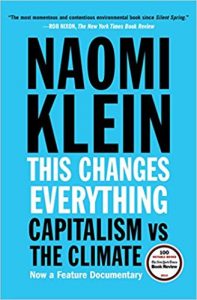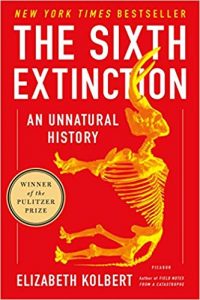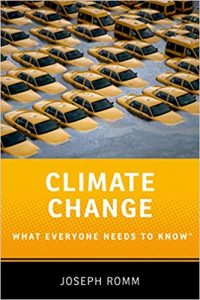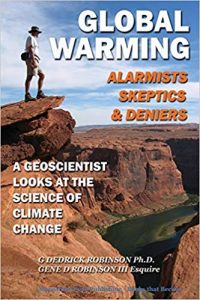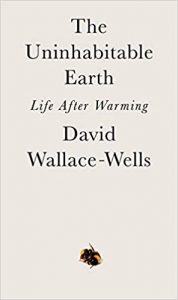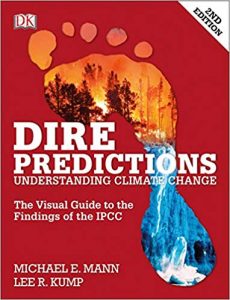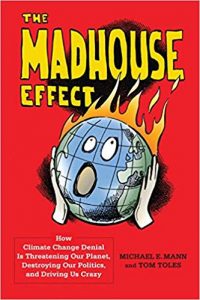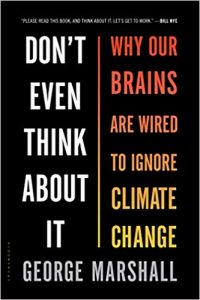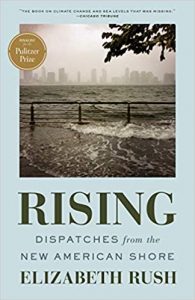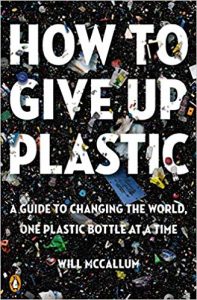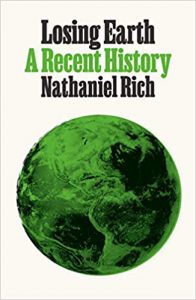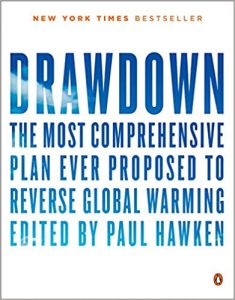8+ Eye-Opening Books About Climate Change
However you feel about Greta Thunberg, it’s hard to deny the Swedish teen has helped to push climate change into mainstream discussion. More than ever before, the wider public is now aware of key environmental issues that need to be fixed. Thus, amid this newfound awareness, what are some of the best books about climate change available that’ll help us separate fact from fiction?
To this end, I present my list of 8 good books on climate change worth getting into. Above all, they’re all written by renowned authors who support their claims with varying evidence. Topics covered include global warming, sea rising, mass animal migration, and other related environmental problems.
Disclaimer: This post contains Amazon affiliate links. Find out more in our Privacy Policy page.
Pin this article for your Pinterest!
My list of the best climate change books to read
1. This Changes Everything: Capitalism vs. the Climate
Like it or not, most of us are participants of the global capitalist system. It is an exchange model that has given us many modern pleasures, including what we choose to consume and desire.
However, Naomi Klein challenges us to take a hard look at the devastating and largely unseen impact of capitalism on our environment. Above all, she details how our present and ever-expanding system is one of the root causes of climate change.
Citing both hard and social scientific sources, Klein argues for the need to radically supplant our economic and cultural priorities. This upheaval is not a luxury but a crucial step for us to hold back a runaway climate disaster – before it’s too late.
This Changes Everything will indeed change the way you think about capitalism.
2. The Sixth Extinction
I also included The Sixth Extinction in our list of 40 Great Non-Fiction Books. Among the best books about climate change, author Elizabeth Kolbert blends natural history with science to tell the harrowing real-life story of a mass extinction happening right before our eyes.
Kolbert explores past epochs of human history, and how we have wreaked increasing havoc on our environment over time. She then examines the ways that rapid species extinction today will quickly devolve into dead oceans, a destroyed ecosystem, and ultimately our own demise.
I absolutely love Kolbert’s passionate writing style. Much of the book comprises her personal reflections garnered from her first-hand interviews and fieldwork. Kolbert also adds a touch of humor – perhaps to offset the otherwise grim situation we face.
In short, The Sixth Extinction is a must-read book about climate change pushes us to abandon our ‘devil may care’ attitude towards human-made environmental damage, and take responsibility.
- Kolbert, Elizabeth (Author)
- English (Publication Language)
- 336 Pages - 01/06/2015 (Publication Date) - Picador (Publisher)
3. Climate Change: What Everyone Needs to Know
Climate Change is a practical guide that covers how environmental shifts will affect us, and our best strategy to adapt. The book is written in a strictly non-political tone. This will mostly appeal to balanced people looking for grounded solutions – rather than panic or denial.
As a renowned expert in the field, Joseph Romm offers plenty of insight on clean energy sources and their potential. In addition, every chapter is cleanly formatted with actionable answers to key environmental questions. Romm also shows us different methods of talking to climate change skeptics amid a growing body of scientific evidence.
In summary, Romm’s facts-based publication is one of the best books on climate change in recent years. In my opinion, it keeps a firm dual grip on the main existential and economic costs of environmental neglect.
4. Six Degrees: Our Future on a Hotter Planet
Mark Lynas discusses climate change in a unique way. In Six Degrees, each of the six chapters details the escalating changes we will experience as the world warms one degree at a time. Above all, it is an imaginative envisage of what will be – if we do nothing today.
However, Six Degrees is much more than just vague speculation. On the contrary, Lynas weaves a very probable climate trajectory based on key findings by scientists, geologists, and other experts.
I think it’s worth noting that the book was first published in 2007. Yet, rather than outdated, Lynas’ climate warning is even more pertinent amid today’s ocean warming, melting icecaps, and uncurbed CO2 emissions. The question now is: what are we going to do about it – or is it simply too late?
- Amazon Kindle Edition
- Lynas, Mark (Author)
- English (Publication Language)
5. Global Warming: Alarmists, Skeptics and Deniers
Climate change is a very polarizing and politically charged issue – mostly between so-called ‘alarmists’ and ‘skeptics’ / ‘deniers’. In light of this, I think it’s important for us to understand differing opinions on the topic. This will help us form our own unbiased opinions.
To this degree, Global Warming is an interesting read. Written by long-time geologist Dr. G. Dedrick Robinson and his son, the book argues how global warming theory actually relies on weak scientific evidence – and thus, lacks any real substance.
Dr. Robinson asserts that modern temperature rises are in fact part of the wider natural cycle of our planet. In addition, he cites scientific evidence to show how environmental shifts today are partly the result of evolving life organisms. In other words, it’s not purely caused by humans alone.
At this moment, I’m inclined to pay greater heed to books about climate change that oppose Dr. Robinson’s skepticism. Yet, at the same time, we shouldn’t hastily reject his opinions either, since there are actually some scientists who agree with him.
Whichever side of the fence you’re on, I think we should at the very least address a few urgent concerns (e.g. the burning Amazon). The need to do so is not up for debate if we are to preserve the living beauty of our planet.
6. The Uninhabitable Earth
A critically-acclaimed bestseller, The Uninhabitable Earth compels us to face the probable impact of our irresponsible attitude towards the environment. Far beyond sea-level rises, David Wallace-Wells details how worsening food shortages, carbon emissions, and general human apathy will quickly slingshot us to the point of no return.
I think The Uninhabitable Earth presents climate skeptics / deniers with a key ultimatum. Specifically, is it worth the risk for us to ignore the possibility of climate change? Is the price of being wrong something we can really afford as a species?
I personally don’t think so. Nonetheless, I invite you to read all of these best climate change books to better weigh in on the discussion.
7. Dire Predictions: The Visual Guide to the Findings of the IPCC
Scientists Michael E. Mann and Lee R. Kump make it easy for us laypersons to grasp big climate change issues with ample illustrations and graphics. This is perfect if you’d rather avoid ‘dry’ data in favor of clear visuals – without losing sight of the facts.
The book mostly focuses on key findings by the IPCC (Intergovernmental Panel on Climate Change). Everything is reconveyed in simple language, which makes for easy – but nonetheless, thought-provoking – reading.
I also appreciate how the authors address some of the IPCC’s past climate predictions and whether they’ve actually panned out over the years. In addition, the book also contains tons of scannable QR links that’ll take you straight to the scientific sources.
In short, Dire Predictions is a great intro for newcomers to the climate change debate. It summarizes our most pressing concerns, with real-world environmental images that help to add impact to words.
You’ll also want to check out The Madhouse Effect, also by Mann. Here, he teams up with cartoonist Tom Toles to highlight the chaotic ‘madhouse’ that now surrounds climate change discourses – mostly due to political misdirection.
8. Don’t Even Think About It: Why Our Brains Are Wired to Ignore Climate Change
I sometimes wonder why many people remain indifferent to climate change issues – despite how pressing they are.
George Marshall gives some answers. Unlike other best books about climate change, Don’t Even Think About It is mostly concerned with human psychology – specifically, why we’re inclined to distract ourselves from dealing with an impending catastrophe.
He interviews a wide array of people, including psychologists, scientists, liberal activists, and conservative skeptics. Through this cross-section, George concludes that our evolutionary fear of death and physical threat has created an existential ‘blindspot’ which keeps us from facing the real dangers of a damaged Earth.
In short, Don’t Even Think About It uncovers the ways our collective mindset have led us to where we are today. Granted, this doesn’t really offer any viable solutions to our present climate problem. However, I do believe understanding why we often refuse to act is the first step towards arriving at how to fix the issues.
Other Insightful Climate Change Books to Read
Rising: Dispatches from the New American Shore
Rising is a heartfelt account of the complex intersections of rising seas, climate change, and displaced communities. Rush’s book is environmental fieldwork at its finest.
How to Give Up Plastic
While not the only issue to contend with, I think How to Give Up Plastic offers really great and practical advice for altering our daily plastic usage. This is crucial given the severe pollution that has afflicted our oceans and marine life.
Losing Earth: A Recent History
How did the divide between climate change activists and skeptics / deniers happen? Nathaniel Rich does a fantastic job with tracing the historical origins of these polarizing stances. In addition, he uncovers how close we once came to actually stopping climate change, all the way back in 1979. That is, before lobbyists and capitalist corporations threw their hats in to disrupt the consensus.
Drawdown gets straight to the point in presenting viable solutions to fight climate change. The main emphasis here is on what we can actually do moving forwards – rather than bemoan past mistakes.
More than 100 plans are presented, all backed by scientific data and policy info. In short, the book is packed with tons of practical wisdom that gives me a little hope for our future.

